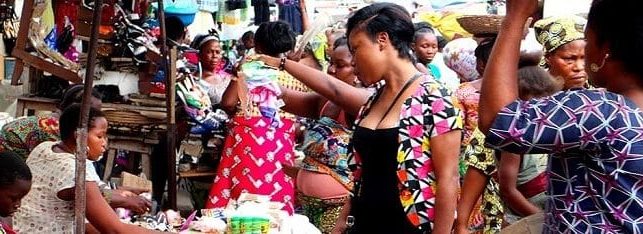Online shopping is big business across much of the world, but in Africa e-commerce has yet to make the sort of impact that other technologies, such as cell phones, have done. However, the online retailer, Odjala, is Africa’s first online shopping mall, and it hopes to capitalize on the ever increasing access the continent has to smartphones and the internet.
The spread of e-commerce
While most African consumers still visit bricks & mortar stores or markets to make a purchase, the market for online retail in Europe and North America is huge. The man behind Odjala, Afiss Bileoma, mentioned that 60% of people in Europe and North America use online shopping to make purchases. The company E-marketer, states that Africa only accounts for 2% of online purchases worldwide, but this is a situation that is already changing and likely to change even more as time goes on.
Internet penetration is around 20% in Africa now, and smartphones are rapidly spreading along the path that cellphones already trod.
This embracing of technology has already led to large online retailers such as Nigeria’s Jumia, which has sites in 23 different African countries. However, the Benin based Odjala will be the first to offer a virtual mall online, and it will be offering consumers the chance to buy a wide range of products.
Bileoma states, “We turn around 10,000 Internet users a day, 20% of which will go through with a purchase. They buy a lot of gifts, clothes, toys. We succeeded a big blow by signing a partnership with Naomi Dolls; dolls that were only available in Côte d’Ivoire or France.”
In addition to offering exclusive products such as Naomi Dolls, Odjala’s main role is in providing an online presence to Benin’s largest outdoor market. The market is called Dantokpa, and is situated in the Cotonou area of the nation. Dantokpa hosts numerous independent shops and stands, yet most of its stock is now available on Odjala’s online mall which allows Benin’s consumers to peruse the extensive range of goods from their own homes.
Outdoor meets online
It would initially seem that an outdoor market is the antithesis of online shopping, but Odjala has sought to connect the traditional way that most Beninese shop, with the growing demand for online services. Odjala means “Big Market” in the local language of Yoruba, and the Odjala app is free to download on both Android and Apple products. Bileoma set up Odjala in 2016, and secured agreements with the majority of Dantokpa’s stores, and additionally made deals with other retailers in the area.
A consumer can use either the app or visit the online mall directly on their computer; any order that is placed is then delivered to their door by a courier. Bileoma accepts that this relatively new concept will take time to grow, as many potential customers have to get used to shopping in such a different way. Bileoma has promoted the concept on social media sites, such as Facebook, but still encountered a lot of customers who he said would “call and who actually wish to see the stalls.”
Nevertheless, such problems can often be overcome by providing customers with a sense of security that lessens concerns they may have over a new service. Bileoma explained that, “If a customer is not satisfied by a product, he can return it.”
This policy is fairly standard for online retailers around the world, but one of Odjala’s other features is a lot less common. Around 90% of purchases made on Odjala are paid for by the customer upon delivery. This model would be highly unusual for most online retailers, and is more akin to the method used by auction sites like Ebay.
However, these types of reassurances could help ensure that people new to online retail, feel more confident about trying a new method of shopping. It is online shopping with an understanding of how the majority of consumers in Benin are used to spending their money, and Bileoma will be hoping that such things build confidence in his brand.
As online shopping saves customers’ time, and the money that would be spent on traveling to a store, Odjala looks set to make the most of the ongoing spread in Africa’s online presence.

